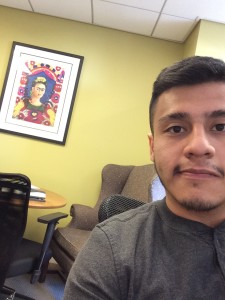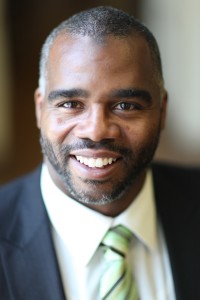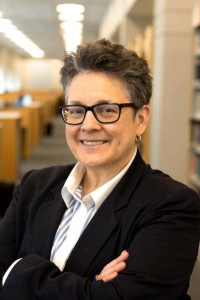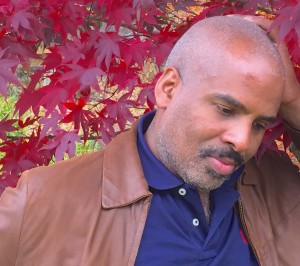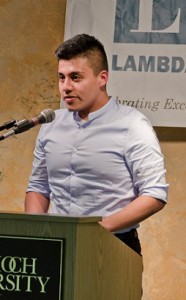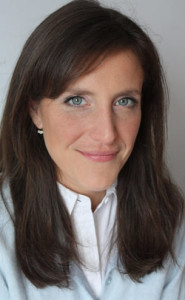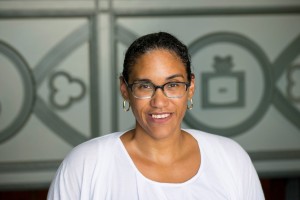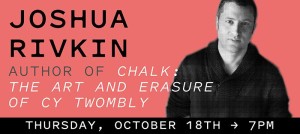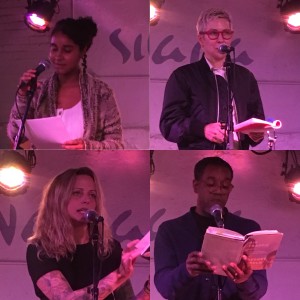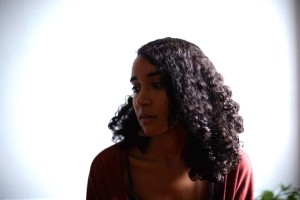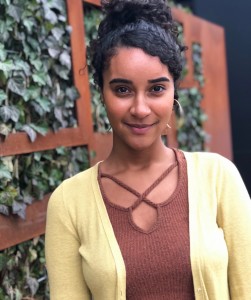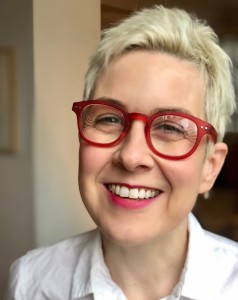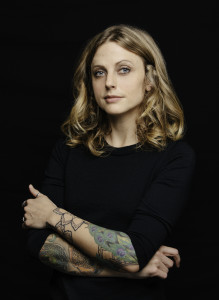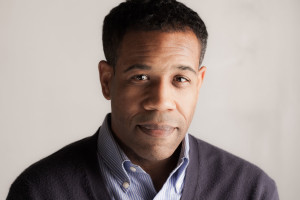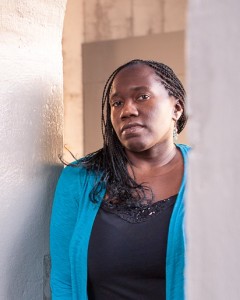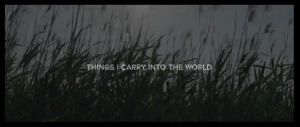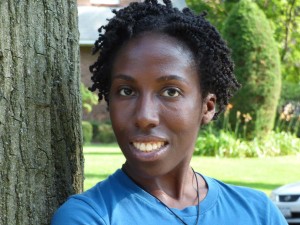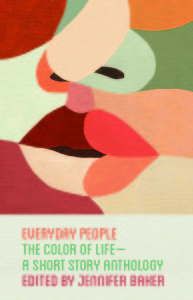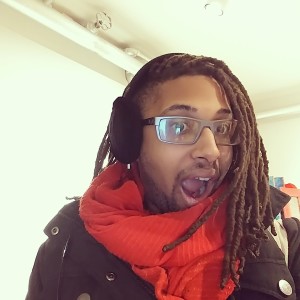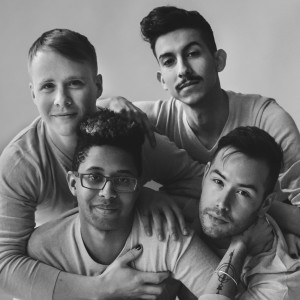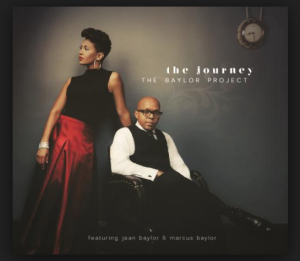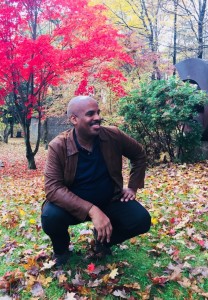 2018 will be the third year essayist and performer Max S. Gordon will read at First Person Plural’s post-election reading “What Just Happened? Writers Respond to Our American Crises”. Gordon does this gorgeously and candidly as he weaves personal history with his current observations, pop culture with the pure love of the dogs in this life. In this essay Gordon makes the case of white supremacy as addiction, remember Jonestown and what it was not, and shares what gives him hope. Hear him read this Sunday, November 18th from 6-8pm at Silvana in Harlem with Ibrahim Abdul-Matin, Judith Baumel, Tanya Domi, Ruby Shamir, Vanessa K. Valdés, and Ricardo Hernandez!
2018 will be the third year essayist and performer Max S. Gordon will read at First Person Plural’s post-election reading “What Just Happened? Writers Respond to Our American Crises”. Gordon does this gorgeously and candidly as he weaves personal history with his current observations, pop culture with the pure love of the dogs in this life. In this essay Gordon makes the case of white supremacy as addiction, remember Jonestown and what it was not, and shares what gives him hope. Hear him read this Sunday, November 18th from 6-8pm at Silvana in Harlem with Ibrahim Abdul-Matin, Judith Baumel, Tanya Domi, Ruby Shamir, Vanessa K. Valdés, and Ricardo Hernandez!
Tell us about 2018, and how you’ve coped and resisted the past two years, the past 40 years. When I spoke at this event last year, I outed myself as an addict. 2018 marks my fifteenth year in recovery from alcoholism. I say this with some pride because, with loving support, I’ve stayed the course, but I say it also with great humility: any addict that wants to keep her recovery knows that you really are just one day away from taking a drink, and that day is today. I’ve met women and men who have fifty years of sobriety, and while that number sounds great on paper, the successful ones know that it is staying sober today that matters. And also knowing when to ask for help.
I offer this here because I think alcoholism is a good way to approach the phenomenon of Donald Trump. As a politician he is an anomaly, so I find it hard to locate him in the history books. He makes much more sense to me when I view him from what I know about my own alcoholism, and having survived alcoholism in my family.
Addiction is a fascinating teacher, and one of the things I appreciate most about addiction is its relationship to whiteness. We are living in a time in which whiteness has run amok, and I’m not referring only to specific white people, but to whiteness as a societal construct. Addiction is one of the last things left in our culture that is almost completely egalitarian when it comes to whiteness. I’m not talking about the drug trade, or communities at risk, or access to expensive rehabs: I’m talking about that beautiful moment when an addict, black or white, is brought to his knees, and says, “I’m really fucked up, y’all. I need some help.”
I’ve written about this before: go to an AA meeting in New York City and you will see the woman who lives in a shelter or a halfway house sitting next to the guy who lives in a penthouse. At the same meeting. And they both have ten days away from drugs and alcohol, they are both struggling to get through the remainder of the day without a drink. In our history, too often whiteness has given one a pass. But try telling Addiction, “I couldn’t possibly be an addict, Darling, I’m white.” It will look at you as if you’re crazy. People show Addiction their resumé as if it meant something. Addiction nods and says, “Really, Harvard Law School, Summa Cum Laude, amazing”, and you still find yourself in jail from a DUI, your marriage over, your career in tatters, your wig completely snatched. Addiction doesn’t give a fuck what color you are, it smashes white and black lives. And when your life is broken in two, it is devastating, but it can also be a wonderful entry point. You may finally face your own silence; you may be ready to listen.
What I’m talking about again is humility, completely absent in this current White House. There is a tradition in 12-step recovery: “Principles before Personalities”. I understand that to mean that, even if we disagree with each other or see each other first through our differences – black, white, straight, gay, rich, poor, whatever – we know we are ultimately dedicated to the principles we all need to save our lives. It’s spiritually very high, that concept, because at its core it says that we are not going to let our personal bullshit get in the way of our ability to learn from each other. We are committed to keeping our ecosystem intact because we both need it to survive.
This has global implications. It’s a beautiful affirmation to avoid war. We may be from different cultures, different nations, but I’m not going to put something into the world which will harm you because ultimately I know it will harm me. But what we have now is the opposite, a society that has become more and more isolationist, based on Personalities before Principles. That’s what reality-TV culture is, and what cults are based on: I’m alone in my little box and I have to go through this famous person’s personality before I can have a relationship with you, with my country, or with myself.
The reason this is relevant at this time, and one of the reasons that Donald Trump is powerful for so many people is that his personality makes whiteness fabulous. Let me back up a bit. America right now is like an alcoholic before entering recovery; these are our “crackhead” years. And I say that with confidence, because I have crack cocaine in my story. Part of what is happening to us is that our culture just can’t sustain whiteness as it once did. Whatever you thought of the Obama administration politically, the Obamas as a black family living in the White House symbolized a very important change in this country in terms of access to power. Whiteness, as we’ve always known it, was put on notice.
At its core, Donald Trump’s presidency is really a reaction to something, rather than an assertion of one man’s vision. It is inert and hollow at its core, which is why there is such a need for smoke and mirrors. And also why he is so dangerous: he has a constant need to overcompensate, to shape-shift, to prove his power crudely, because there is no real leadership. Nothing he does seems to have anything to do with justice or basic decency, but what Donald Trump does do – and he does it spectacularly – is to make whiteness fun and entertaining for his masses. And in “whiteness” I include homophobia, patriarchy, gender bias, hostility towards the environment, unchecked greed for profit, and a deep suspicion of, and desire to annihilate, anyone perceived as “other”. It’s not America he’s making great again, it’s whiteness; because whiteness as a construct is on its last legs and everybody knows it.
Now, if you have invested in whiteness your whole life, or believed or been told from birth that it makes you special in some way, you are going to be shocked when you try and withdraw money from that bank account and the teller tells you it’s been cleaned out. The heartbreak is too much, the dislocation is too much. You will either change and find a different premise on which to base your life, or you will go to a Trump rally and cheer.
The problem, again, is that our relationship with whiteness as a country is very similar to that of an addict in the throes of drug and alcohol addiction: you need more and more, and the more desperate you become, the more you need to numb yourself. A society addicted to whiteness will eventually lead to full-on white supremacy and Nazism. It’s inevitable. Germany chose whiteness after the shame they felt after World War I; and Donald Trump plays on our cultural shame – that we aren’t “winning” anymore. That’s hard for us to hear as Americans, and it is especially hard for white American men. What’s unfair is that Donald Trump won’t tell the full truth – we aren’t winning anymore, not because we’re losers but because the game changed, and it needed to change.
If that truth is too real to face, you may choose instead to feel outraged and cheated – and Donald Trump is the leader for that disaffected person. That’s why we have all these mass-shootings. In these men’s minds, I believe it is like going to one of those tacky traveling carnivals where you have to throw a ring around a goldfish bowl to win a stuffed animal. And you throw ring after ring until you realized it’s rigged; and when you finally do win, they change the rules on you and you don’t get the big, beautiful teddy bear you set your heart on, you get some piece of shit that probably costs less than the first dollar you spent to play. Twenty dollars later, you feel tricked and stupid; you could have bought your own damned bear. White men feel they are playing the game as they have been taught, and that they aren’t winning any prizes. That’s how these men feel when they walk into a movie theater with an assault rifle. They aren’t getting even with someone, they are getting even with the loss of a way of life.
I met a white man, college-educated, bright, who told me he voted for Trump because he was tired of seeing transgender people on television. They are getting too much power, he said, they have their own talk-shows now; and, I surmised, he feels he doesn’t have any power. These shootings are more than just random outbreaks of violence, they are deep acknowledgements of impotence and entitlement. White men shooters are responsible for their actions, but in a profound way whiteness has warped all of us. I’ll end this answer where I began: We are desperately sick as a country right now and we need to admit to ourselves that we need help.
In 2016, you wrote a piece called “The Cult of Whiteness: On Donald Trump, #OscarsSoWhite and the End of America”. You mentioned cults in relationship to Donald Trump here, can you talk a little more about that? The day of our First Person Plural Reading Series event is also the 40th anniversary of the Jonestown massacre, November 18, 1978, the single most devasting event involving American deaths before the attack on the World Trade Center on 9/11. Several years ago, I read most of the books I could find about Jonestown. I really wanted to understand what happened there, who these people were. The first thing I decided after reading just one book was that I would never again use the phrase “drinking the Kool-Aid” to mean capitulation to another person or idea. There has been a cultural assumption about the people who died there; that they followed a religious leader to a remote part of a jungle – a majority of them people of color – and that this man, Jim Jones, told them all to kill themselves. They said, “okay” because they were devoted to him, and hours later 909 lives were lost. But that’s not how it went down at all.
If you read the history of Jim Jones and The People’s Temple, you will find that many of those people wanted to leave, but had no way out and were forced to take the cyanide at gunpoint. There were unquestionably zealots within the group, but I believe the majority would have made a different choice if they hadn’t been conditioned over time and eventually forced to kill themselves. We know the dynamics of what went on there from the incredible stories of the people who survived, and actual recordings. What most of us don’t know is that many of the people who died there followed Jones to Guyana because they believed they could create a just society where the elderly were genuinely cared for, where racism and sexism didn’t exist, and where people came together from all social backgrounds to feed the hungry and provide health- and childcare. Many of them had a vision to see real change in the world, and I believe that if they achieved any part of their goal – and the photographs of parishioners black and white, young and old laughing together, suggest they at some point they did – they can be an inspiration to us. I want to honor those people and their vision here.
Jonestown is instructive because it shows how people can be manipulated by a charismatic leader, people who are often well-intentioned, into behaving in ways that are unfathomable. And it happens by degrees. There will always be the crackpot in our society, the unbalanced person like the recent pipe bomber, whom we can dismiss as crazy. But it is also what is happening to us – the “regular” people. We don’t see how easily we can one day become that pipe bomber. Hitler is used as an example of evil so often that he becomes banal; he loses his power to horrify us anymore. What fascinates me is not only the phenomenon of Hitler, but of the woman who lives a mile or two away from the concentration camp, who can see and smell the smoke from the ovens as she is putting out her laundry. She isn’t a madwoman; she’s a mother, a sister, a best friend, a wife. The man who turns on the gas, used to be a farmer; he’s also a husband, a brother, a son. How does evil become normalized for him? When did forcing people into the gas chamber become just another day at work?
These examples seem so extreme, something that happened to other people in a never-never land. But when you visit Berlin and see the sign right outside Wittenbergerplatz train station, that reads, “Orte des Schreckens, die wir niemals vergessen dürfen …” (“Places of terror we must never forget”) and lists the Nazi concentration camps, you see why it is essential to remember. We don’t have that same relationship to our own evil in this country. We don’t have the daily reminders and awareness about slavery and lynching. That makes us vulnerable. Last week the Senator from Mississippi, Cindy Hyde-Smith, made a joke about “public hangings” in an election in which she is running against a black candidate. And she seems to be getting away with it. The consciousness just isn’t there.
Something is happening to us, right now, and we need to examine it carefully. Our myth about ourselves as Americans is that we are strong – and we are. We are also impressionable, because all human beings are. You hate the new apartment you have to move into because it’s smaller than your old place; you can’t stand it for the first two months, but eventually you put up some shelves, get some nice plants, put up a poster or two and you adjust. You get used to it. I think evil can be like that. We turn on the news and find out that Jim Acosta has had his press pass taken away by the White House, or that John Brennan has had his security clearance revoked, and that there is retaliation against anyone who challenges or speaks out against this administration. We’re horrified, of course. But if the day comes when we turn on the news and say, “Oh, it’s about Jim Acosta again, it looks like they’ve locked him in jail this time”, and then turn to Netflix, we are in big trouble. On some level, it is our civic duty to remained horrified by what is happening. We need to stay determined that this never be okay with us.
What gives you hope these days? The online image which someone compiled of all the women of color newly elected to the House of Representatives. The night of the elections, I focused too much on what I perceived as the main events, the governorships, and I was furious that Ted Cruz won again. Sometimes you ask yourself, “Are we all watching the same news? Are we seeing the same things in the world?” Clearly, we’re not. I was so looking forward to not having to see that face or hear that voice again. But I listened to people I respect celebrating the House wins, and while it wasn’t a blue “tidal” wave, it was a blue wave of a kind. What it reveals is that there is resistance; that people are saying no to this administration. And that is important. I remember how we would often chant at rallies, “Tell me what democracy looks like!” And when I see those women, and the diversity represented in terms of sexual orientation, gender, race, cultural identity, I hear the response: “This is what democracy looks like!”
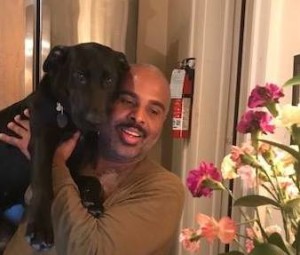 Last year I wrote about being inspired by my sister’s dog, this year I got a puppy, a labrador-shepherd mix, who recently turned ten months old. She is extremely loving, deeply exasperating, indefatigable and hilarious – all at once. It’s been an amazing adventure. I’ve never had a lab before – I had no idea what I was getting into! I posted a picture on Facebook of myself sitting in front of my computer, despairing about the latest Trump débâcle, and she jumped up on her hind legs and licked my face, as if to say, “Stop watching CNN and that horrible man and play with me this instant!”
Last year I wrote about being inspired by my sister’s dog, this year I got a puppy, a labrador-shepherd mix, who recently turned ten months old. She is extremely loving, deeply exasperating, indefatigable and hilarious – all at once. It’s been an amazing adventure. I’ve never had a lab before – I had no idea what I was getting into! I posted a picture on Facebook of myself sitting in front of my computer, despairing about the latest Trump débâcle, and she jumped up on her hind legs and licked my face, as if to say, “Stop watching CNN and that horrible man and play with me this instant!”
I spoke last year at FFPS about drawing energy from nature; and while I still consider myself mostly a city boy, the more I get frustrated with politics, the more I return to the healing force of living things. Nature, even when it is occasionally cruel, encourages empathy. I’m in upstate New York some of the time, and there are trees so beautiful as they are shedding their leaves, you drive by and gasp. Splashes of the deepest reds and yellows and bright orange. I think every person of color, every queer person, every woman – basically all those who are targeted by the White House – should have regular contact with nature and animals during this political season. I am very happy, for example, that my dog cannot watch FOX news, and that she hasn’t been conditioned by racism and has no idea who Ann Coulter is. That’s purity. I may have to worry about Mike Pence trying to overturn gay marriage (and if he does, I’ll sue him for every penny of our wedding costs four years ago) but I don’t have to worry about our dog being homophobic – if she hates us it’s not political, it’s because we refuse to give her a treat. This is extremely important to my continuing mental health. I’m observing people having mental breakdowns and being triggered for all kinds of abuse memories by this administration. The injustice of the Kavanaugh hearings alone was enough to put even the sanest person into a psych ward. We need to find sources of sanity, of unconditional love. So, I listen to NPR, feel depressed about life under Trump, and then go and look for our dog to find out what she’s tearing up now. It works for us.

